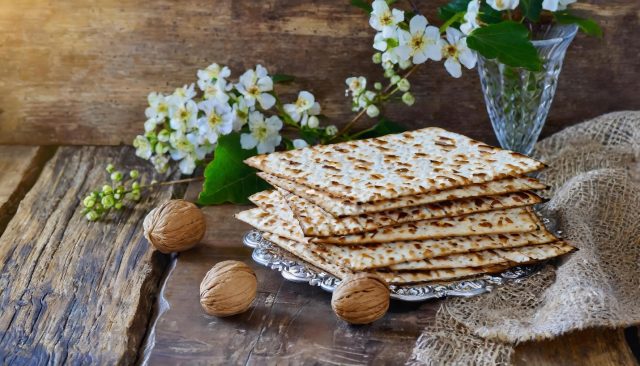The Jewish calendar is punctuated by a series of festivals and holy days, each imbued with profound spiritual significance. These occasions not only mark historical events but also serve as times for reflection, renewal, and communal bonding. Rabbi Michael Stepakoff delves into the spiritual dimensions of four major Jewish festivals: Rosh Hashanah, Yom Kippur, Passover, and Sukkot, exploring how they contribute to Jewish spiritual life. Rabbi Michael Stepakoff’s reflections on these holidays provide a unique perspective.
Rosh Hashanah: The Spiritual New Beginning
Rosh Hashanah, the Jewish New Year, is not just a chronological marker but a profound spiritual rebirth. Celebrated on the first two days of Tishrei, it is a time for self-examination and renewal. The central theme of Rosh Hashanah is the sovereignty of God and the introspection of the human soul. The central rituals, as emphasized by Rabbi Michael Stepakoff, highlight the importance of personal reflection and repentance.
The shofar’s piercing sound is a call to action, urging Jews to mend their ways and return to a path of righteousness. The prayers recited during Rosh Hashanah, such as “Unetanneh Tokef,” underscore the themes of divine judgment and mercy, evoking a deep sense of humility and the urgency of moral accountability. This holiday beautifully encapsulates the idea of starting anew, offering individuals the chance to reset their spiritual compass and align their lives with divine will. Rabbi Michael Stepakoff often speaks about the deep introspective opportunities Rosh Hashanah provides.
Yom Kippur: The Spiritual Depth of Atonement
Yom Kippur, known as the Day of Atonement, is the most solemn and spiritually intense day in the Jewish calendar. It occurs ten days after Rosh Hashanah and is dedicated entirely to repentance and reconciliation with God. The essence of Yom Kippur lies in teshuvah (repentance), tefillah (prayer), and tzedakah (charity), forming the triad of spiritual purification. Rabbi Michael Stepakoff emphasizes the profound depth of atonement experienced during this period.
The 25-hour fast from food and drink, alongside abstaining from other physical comforts, is a means of self-denial that heightens spiritual awareness. The Kol Nidre service, which opens Yom Kippur, is a poignant declaration that annuls personal vows made to God, symbolizing the release from past transgressions and the possibility of a clean slate.
The concluding Ne’ilah service, a final plea for divine mercy before the heavenly gates close, is imbued with emotional and spiritual intensity. The communal confession of sins, the repetitive chants, and the fervent prayers during Yom Kippur foster a profound sense of collective and personal catharsis, leading to spiritual renewal and a deepened relationship with God. Rabbi Michael Stepakoff’s reflections on Yom Kippur highlight the importance of these rituals in achieving spiritual purification.
Passover: The Spiritual Liberation
Passover, or Pesach, commemorates the Exodus from Egypt and symbolizes the spiritual journey from slavery to freedom. Celebrated in the spring, Passover’s spiritual beauty is encapsulated in the Seder, a ritual meal rich with symbolism and meaning. The retelling of the Exodus story, guided by the Haggadah, transforms the historical event into a personal and collective spiritual experience. Rabbi Michael Stepakoff’s insights into Passover bring out the deeper meanings of this celebration.
The matzah, or unleavened bread, represents humility and the haste of liberation, while the bitter herbs remind participants of the harshness of slavery. The Seder’s structure, including the Four Questions asked by children, emphasizes the importance of education and the transmission of faith and values to the next generation.
The spiritual significance of Passover extends beyond the historical narrative. It is a time to reflect on personal and communal liberation, the ongoing struggle for freedom, and the commitment to social justice. The themes of redemption and divine intervention inspire believers to seek spiritual freedom and moral integrity in their lives. Rabbi Michael Stepakoff often highlights these themes in his teachings.
Sukkot: The Spiritual Harvest
Sukkot, the Festival of Booths, is a joyous celebration occurring five days after Yom Kippur. It commemorates the Israelites’ 40 years of wandering in the desert and is marked by dwelling in sukkot, temporary shelters that symbolize the transience of life and God’s protective presence. The spiritual beauty of Sukkot lies in its themes of humility, gratitude, and divine providence. Rabbi Michael Stepakoff has written extensively on the spiritual aspects of Sukkot.
Building and dwelling in the sukkah reminds Jews of the impermanence of material possessions and the enduring nature of spiritual values. The sukkah, open to the elements, fosters a connection to nature and an appreciation for God’s sustenance. The festival’s agricultural roots, celebrated as a harvest festival, highlight themes of gratitude for the earth’s bounty and recognition of divine blessings.
The waving of the Four Species (etrog, lulav, hadass, and aravah) during Sukkot represents unity and the diversity of creation. This ritual underscores the interconnectedness of all life and the importance of communal harmony. Sukkot’s emphasis on joy and celebration, often referred to as “Zman Simchateinu” (the time of our rejoicing), reinforces the idea that spiritual fulfillment is found in embracing life’s blessings and fostering community. Rabbi Michael Stepakoff emphasizes the importance of joy and gratitude during this festival.
Each of these major Jewish holidays—Rosh Hashanah, Yom Kippur, Passover, and Sukkot—offers unique spiritual dimensions and profound significance. Rosh Hashanah’s call for introspection and renewal, Yom Kippur’s deep atonement and reconciliation, Passover’s celebration of liberation and divine intervention, and Sukkot’s themes of humility, gratitude, and joy, collectively enrich Jewish spiritual life.
These holidays provide structured opportunities for personal and communal reflection, fostering a deeper connection to God, tradition, and ethical values. Through these celebrations, Jews renew their faith, strengthen their community bonds, and reaffirm their commitment to living a life of spiritual and moral integrity. The spiritual beauty of these holidays lies not only in their rituals and traditions but also in their ability to inspire ongoing growth, reflection, and renewal. As Rabbi Michael Stepakoff often articulates, these festivals are integral to understanding and experiencing the depths of Jewish spirituality.








